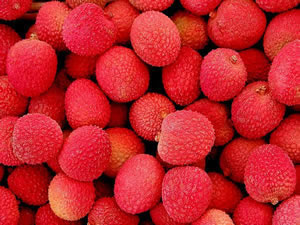Ag-Econ Home>Fruit Crops>Lychee>Publications>Commodity Publications-Lychee-English
- Importation of Tropical Fruits from Thailand
- Recently, the U.S. government has decided to amend federal fruit and vegetable regulations to allow importation into the United States of longan, lychee, mango, mangosteen, pineapples, and rambutan from Thailand. The decision to change the regulation was in response to a request from the National Plant Protection Organization (NPPO) of Thailand and in keeping with the commitments given by the United States under the International Plant Protection Convention (IPPC). More>>
- Trade Adjustment Assistance for Farmers: Lychee Technical Assistance Curriculum
- The purpose of TAA for Farmers is to help agricultural producers and fishermen adjust to import competition. For the lychee market, less than five percent of the world’s production, or approximately 100,000 tons, enters into world trade on an annual basis. The fresh fruit market dominates the trade, followed by dried and canned fruit. The main importing countries are the European Union, the United States, Hong Kong, Singapore, Japan, and Canada. The main exporting countries are China, Taiwan, Thailand, Madagascar, South Africa, Mexico (most of it sent to California) and Australia. More>>
- Is It Still Profitable to Grow Lychee in Florida?
- Production of lychee in Florida expanded rapidly in the 1990s following Hurricane Andrew in 1992. Growers were drawn to the high returns and the prospects driven by strong demand from an increasing U.S. Asian population. However, with the current prices plummeting well below those obtained three to five years ago and with costs of production continually rising, many growers are questioning if it still makes sense to grow lychee. In the following analysis, we examine developments within the U.S. lychee industry and focus on the costs and returns of producing lychee in Florida to determine whether farmers can still make a profit from growing this commodity. More>> (More in Spanish>>)
- Six Ways to Improve the Profitability of Lychee in South Florida
- Increases in the U.S. import market have caused the U.S. domestic price for lychee to plunge dramatically, leaving many growers wondering whether the industry can remain profitable. Further aggravating the situation is the strong demand for land by real estate developers in the area, which has enticed some growers to exit the industry. While the decision of whether to remain in the lychee business, shift to alternative enterprises, or sell the land to the real estate developers is a personal decision, we offer some suggestions to growers on how to increase their returns from lychee. Specifically, we discuss six ways to improve the profitability of lychee enterprises, with an emphasis on marketing. More>> (More in Spanish>>)

